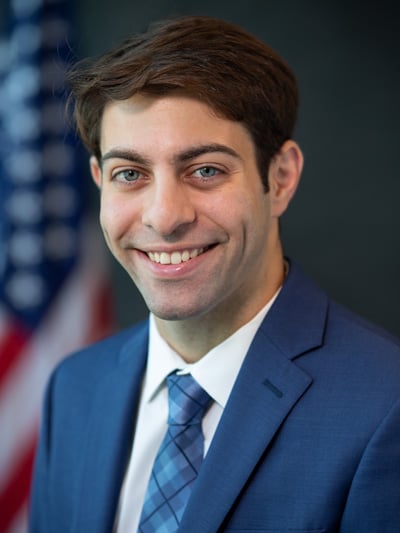Author
On Capitol Hill, there has been a flurry of activity on legislation related to expanding access to medication for opioid use disorder treatment, extending the classification of illicit fentanyl analogues as Schedule I under the Controlled Substances Act (CSA), and removing barriers to financial services for cannabis-related businesses. As the 117th Congress continues, below is a brief update on the status of key substance-related legislation and prospects for the remainder of the year.
Eliminating the DEA X-Waiver
On April 14, the House Energy and Commerce Committee’s Health Subcommittee held a hearing on challenges for combatting substance use disorder during the pandemic. Just two weeks prior to the hearing, the White House Office of National Drug Control Policy (ONDCP) Acting Director Regina LaBelle announced drug overdose deaths increased by approximately 27% during the COVID-19 pandemic over the previous year. As data continues to be released on the impact of the pandemic on the opioid crisis, there is increased optimism about quick action by Congress to combat factors contributing to the crisis.
One of the top priorities of the hearing was to examine how Congress can expand access to medication for opioid use disorder (OUD), including buprenorphine. Buprenorphine is one of three medications approved by the Food and Drug Administration (FDA) to treat OUD. In 2000, Congress imposed a requirement that any practitioners prescribing buprenorphine to treat OUD must first acquire a waiver from the Drug Enforcement Agency (DEA) known as a “DEA X-waiver.” Before acquiring this waiver, practitioners are required to receive at least eight hours of specialized training and agree to the DEA’s right to audit their medical office at any point. As a result of these restrictions, only 6% of all eligible practitioners have a DEA X-waiver and 40% of all counties in the country do not have a single waivered practitioner.
The Mainstreaming Addiction Treatment (MAT) Act, introduced by Rep. Paul Tonko (D-NY) and Rep. Michael Turner (R-OH), was referenced throughout the April 14 hearing as a solution to increasing the availability of buprenorphine. The bill, which has been endorsed by NAAG, would eliminate the DEA X-waiver requirement.
Acting ONDCP Director LaBelle spoke at length during the hearing about the administration’s recently announced drug policy priorities, which include expanding access to treatment and removing “unnecessary barriers to prescribing buprenorphine.” However, despite these statements supporting buprenorphine becoming more widely available for OUD treatment, Acting Director LaBelle declined to explicitly endorse the MAT Act when asked by Rep. Tonko. On April 27, two weeks after the hearing, the Biden administration released new federal guidelines removing certain requirements for practitioners seeking to prescribe buprenorphine to treat OUD. Unfortunately, these new guidelines by themselves cannot eliminate the DEA X-waiver which requires congressional action.
A similar push to eliminate the DEA X-waiver is ongoing in the Senate. In late March, a bipartisan coalition introduced CARA 3.0, which includes several proposed grant programs and reforms including elimination of the DEA X-waiver. One of the lead sponsors of CARA 3.0 is Sen. Maggie Hassan (D-NH), who is also leading the Senate version of the MAT Act with Sen. Lisa Murkowski (R-AK).
Scheduling of Illicit Fentanyl Analogues
Another topic addressed during the recent House Energy and Commerce Committee’s Health Subcommittee hearing was the fast-approaching expiration of a temporary DEA order that classified illicit fentanyl analogues as Schedule I drugs. Schedule I drugs are defined by the DEA as “drugs with no currently accepted medical use and a high potential for abuse.” Fentanyl, a synthetic opioid similar to morphine but much more potent, and many related fentanyl analogues have been largely responsible for the shocking uptick in synthetic opioid deaths in the past year.
The DEA’s initial temporary order expired on February 6, 2020 but was extended by Congress’ passage of the Temporary Reauthorization and Study of the Emergency Scheduling of Fentanyl Analogues Act. This legislation extended the classification until May 6, 2021 and passed in the Senate with unanimous consent. Sen. Rob Portman (R-OH) and Sen. Joe Manchin (D-WV) have also reintroduced the Federal Initiative to Guarantee Health by Targeting (FIGHT) Fentanyl Act, which has been endorsed by NAAG and would permanently classify illicit fentanyl analogues as Schedule I.
During the committee hearing, Acting ONDCP Director LaBelle pushed back on any permanent actions. She encouraged Congress to temporarily extend the classification to provide more time for agencies to conduct research on possible consequences of a permanent classification.
In the weeks following the hearing, numerous proposals to extend the temporary order gained momentum, though Congress has made it increasingly clear that a permanent classification through legislation has lost momentum. Days before the May 6 deadline, President Biden signed H.R. 2630, which extends the temporary order through September 30. Senate Judiciary Committee Ranking Member Chuck Grassley (R-IA) had also recently teamed up with Senators John Cornyn (R-TX) and Maggie Hassan (D-NH) to introduce the Temporary Extension of Fentanyl Scheduling Act of 2021, which would have gone further than H.R. 2630 by extending the temporary order through July 6, 2022. Like last year, the temporary extension guarantees that the debate over how to schedule illicit fentanyl analogues will continue this fall as September 30 approaches.
SAFE Banking Act
For the second time in as many Congresses, the Secure and Fair Enforcement Banking Act of 2021, also known as the SAFE Banking Act, passed the House of Representatives by a 321-101 margin on April 19. In 2019, the bill passed the House but never received a vote in the Senate. Its prospects during this Congress remain unclear.
The SAFE Banking Act would prevent federal regulators from penalizing financial institutions that provide services to legitimate cannabis-related businesses. Though most states have already legalized the use of cannabis for medical or recreational purposes, it is considered a Schedule I drug under the CSA, which prevents the banking industry from accepting any deposits from cannabis businesses. As legal cannabis sales are anticipated to double to over forty-one billion dollars between now and 2025, this legislation is intended to make it easier for cannabis-related companies to take advantage of the banking system and move away from relying on cash transactions. The lead sponsors also hope the legislation will make it easier for other industries, such as law firms or real estate companies, to engage with the cannabis industry.
During a White House press conference on April 20, White House Press Secretary Jen Psaki did not commit the President to supporting or opposing the SAFE Banking Act. However, she was firm in describing the President’s view that decisions regarding the legalization of recreational marijuana should be left to individual states and that the President supports rescheduling cannabis as a Schedule II drug. On this issue, the President differs from Senator Majority Leader Chuck Schumer (D-NY), who has recently come out in support of national legalization. Senate Banking, Housing and Urban Affairs Chair Sherrod Brown (D-OH) is adamant that any cannabis legislation must include drug sentencing reform and several Republican senators still oppose the SAFE Banking Act, including Senate Banking, Housing and Urban Affairs Ranking Member Sen. Mike Crapo (R-ID), who formerly chaired the committee. Under these circumstances, the legislation faces numerous hurdles on its way to becoming law. Whether those hurdles will be overcome in the 117th Congress remains unclear.
The SAFE Banking Act was previously endorsed by NAAG during the 116th Congress. However, NAAG has not renewed that support in the 117th Congress. On April 1, 2021, the four lead attorneys general of the 2019 endorsement letter reiterated their own continued support to Congress in a letter to congressional leadership.





